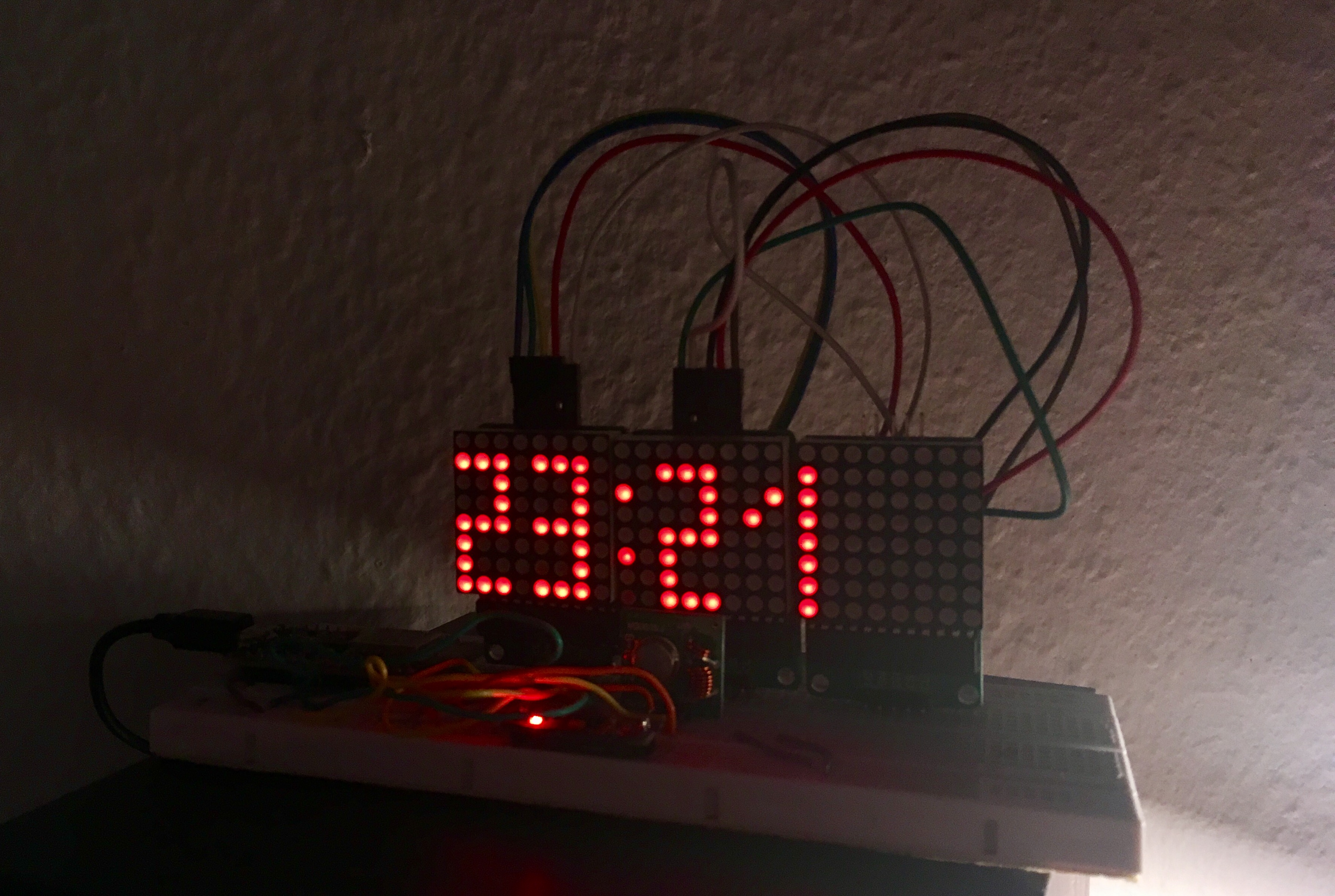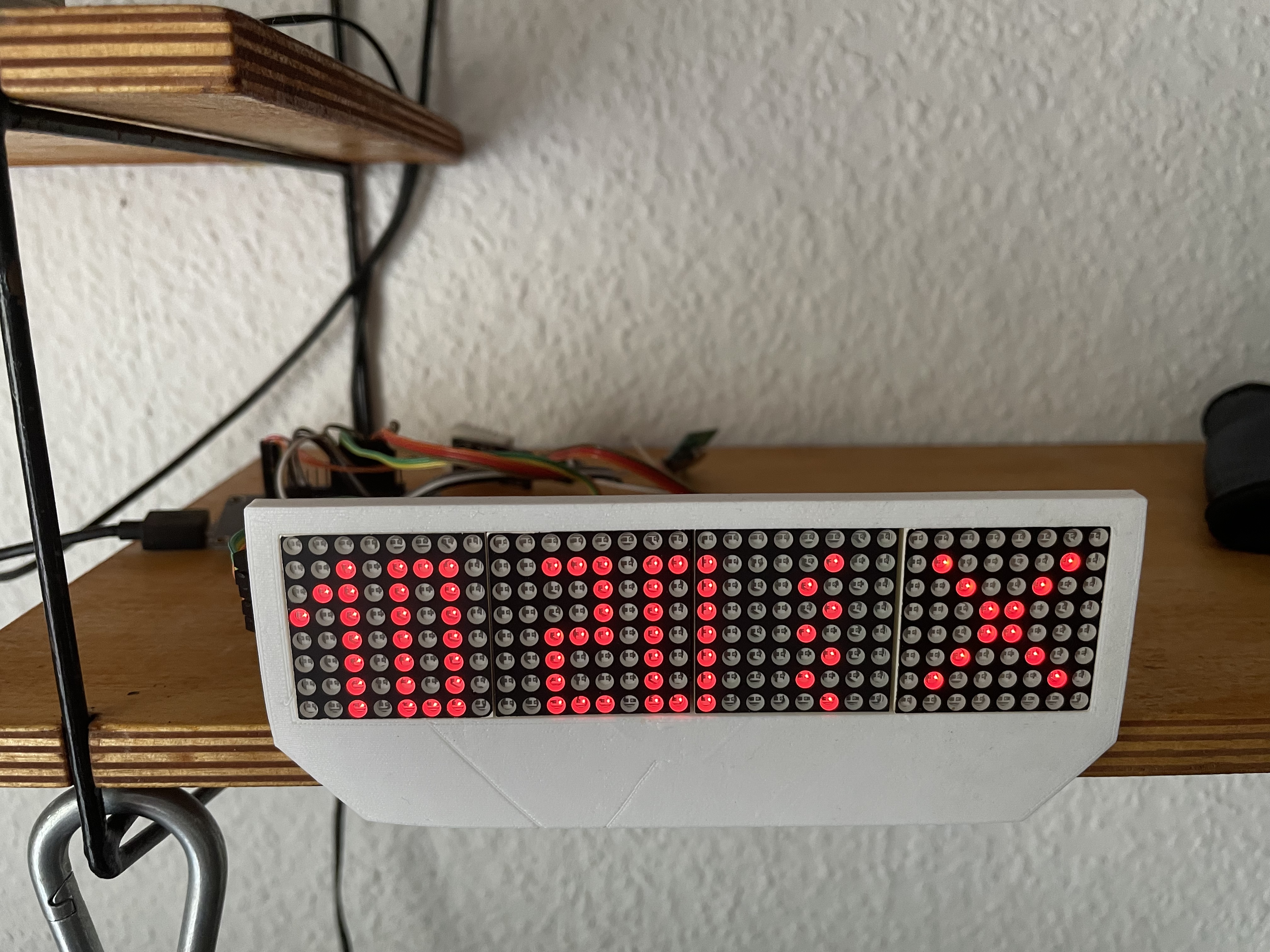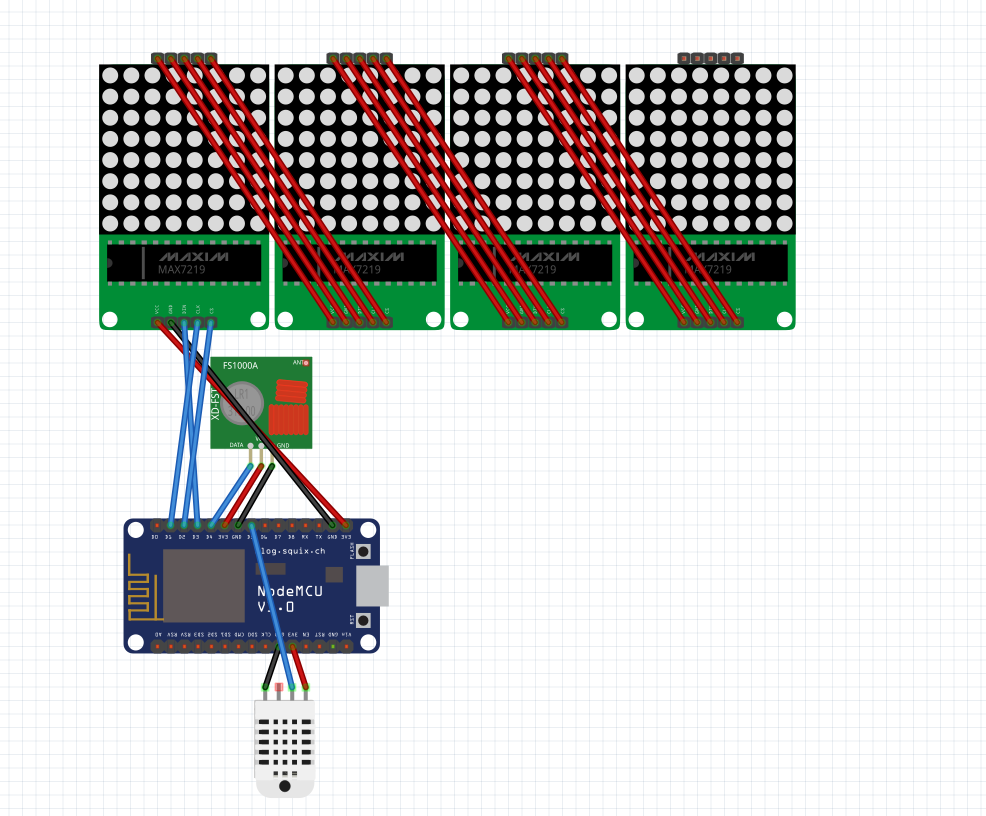We started designing and building a small clock that is connected to your local Wifi and controls your home using cheap 433Mhz power outlets. The ESP8266 operates as a relay to communicate with your power outlets.
The total costs are around 25€:
- NodeMCU board with the ESP8266 and an USB programmer
- DHT11 or DHT22 (optional)
- 433Mhz transmitter (XD-RF-5V)
- 4x MAX7219 based 8x8 led matrix
- 433mhz Wireless Remote Control Electrical Outlet Switch (example)
- some wires
- opens an access point to enter your local Wifi SSID and password
- customisable slots for your power outlets
- custom brightness settings for the LED matrix
- Read Data from a DHT11 temperature and humidity sensor and send it to a remote Host (for saving the data see: sensor.php)
- NTP Time support
- supports multiple Wireless Remote Control protocols (we are using the rc-switch library)
- dyndns (using a get request on a given url every 10 minutes)
- password-authentication for user from the internet (no https 😞)
- OverTheAir Update
| Module | last tested version |
|---|---|
| ESP8266 | 2.7.1 |
| NTPClient | 3.2.0 |
| Adafruit_Sensor | 1.1.3 |
| DHT-sensor-library | 1.3.10 |
| LedControl | 1.0.6 |
| rc-switch | 2.6.3 |
| Time | 1.6.0 |
- Board: NodeMCU 1.0 (ESP-12E Module)
- Builtin Led: 2
- Upload Speed: 115200
- CPU Frequency: 80Mhz
- Flash Size: 4MB (FS:1MB OTA:~1019KB)
- Debug Port: Disabled
- Debug Level: None
- lwIP Variant: v2 Lower Memory
- VTables: Flash
- Exceptions: Enabled
- Erase Flash: Only Sketch
- SSL Support: All SSL ciphers (most compatible)
arduino ./ESP_clock/ESP_clock.ino --verify --preserve-temp-files
curl -u admin:admin -F "image=@$(find /tmp/arduino* -name 'ESP_clock.ino.bin')" esp8266/update
or via webinterface at http://esp8266/update




